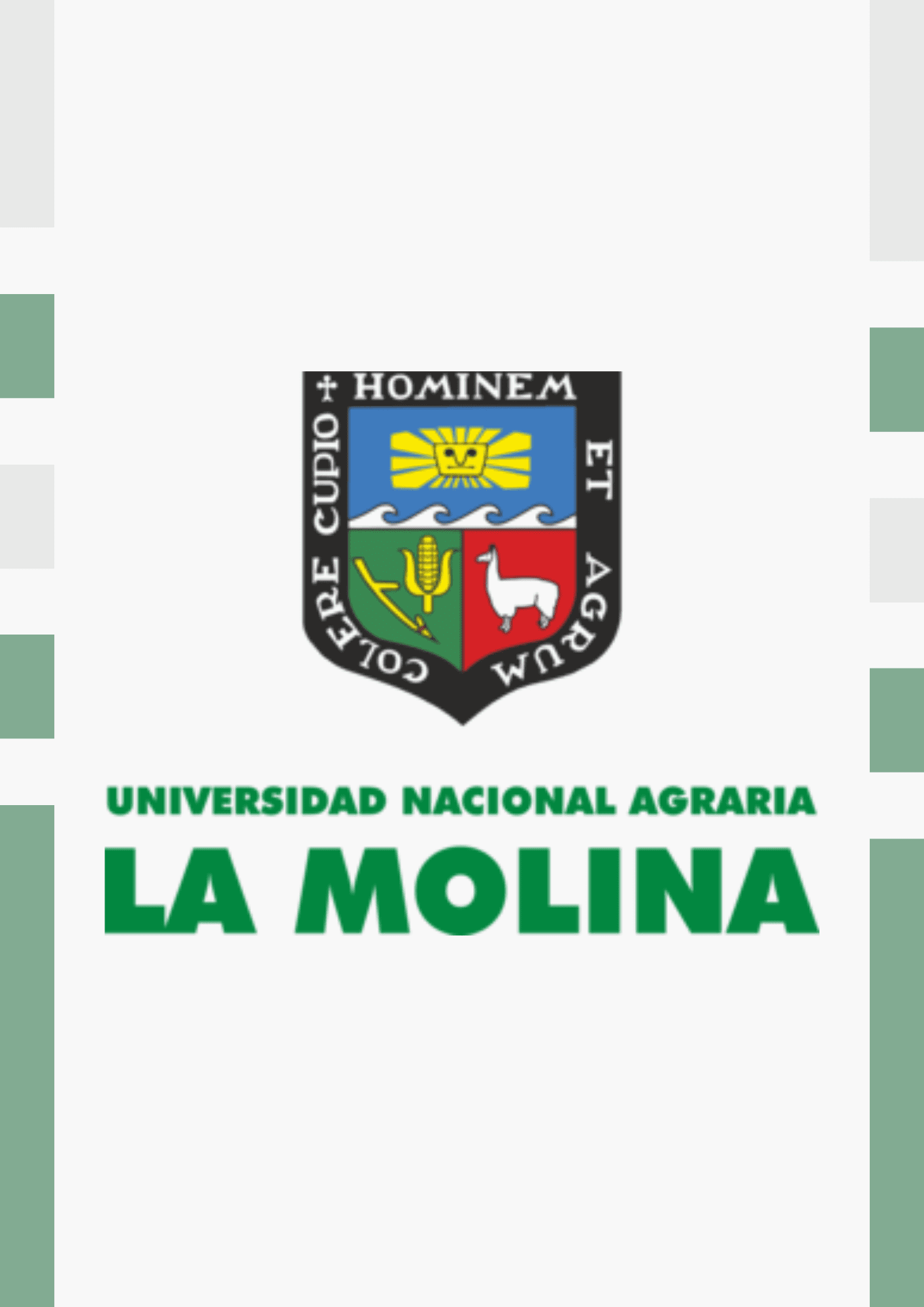Interacción de tres láminas de riego y dos dosis de fertilización azufrada en el cultivo de frijol (Phaseolus vulgaris L.)
| dc.contributor.advisor | Ascencios Templo, David Ricardo | |
| dc.contributor.author | Gomez Llamocca, Stefany | |
| dc.date.accessioned | 2025-09-07T16:58:49Z | |
| dc.date.available | 2025-09-07T16:58:49Z | |
| dc.date.issued | 2025 | |
| dc.description | Universidad Nacional Agraria La Molina. Facultad de Ingeniería Agrícola. Departamento Académico de Recursos Hídricos | |
| dc.description.abstract | El presente trabajo de investigación se llevó a cabo en el Centro de Investigación y Extensión en Riego (CIER) con el objetivo de evaluar la interacción de tres láminas de riego en función de la evapotranspiración de referencia (Eto) ajustada mediante coeficientes de riego del 40%,80% y 120%, y dos dosis de fertilización azufrada. Se utilizaron dos tipos de fertilizantes: un fertilizante comercial (FC) con un 8% de azufre y un fertilizante especial (FE) con un 12% de azufre, en el cultivo de frijol (Phaseolus vulgaris L.). Se empleó un diseño de bloques completos al azar (DBCA) con arreglo factorial de tres láminas de riego y dos tipos de fertilizantes, con un total de seis tratamientos con tres repeticiones. El análisis estadístico no mostró diferencias significativas entre los tratamientos en variables agronómicas como la altura de planta, el rendimiento, el peso de 100 granos, el número de vainas por planta, el índice de cosecha, la longitud de las vainas, el número de lóculos por vaina, el peso de los granos por vaina y el número de granos por vaina. En cuanto al rendimiento, el tratamiento T3FE, alcanzó el mayor valor (1,79 t ha-1), el valor más bajo (1,18 t ha-1) se obtuvo en el tratamiento T1FC. La mayor eficiencia en el uso del agua (UEA) correspondió a T1FE, con 0,79 kg m-3, mientras que el menor valor correspondió a T3FC, con 0,5 kg m-3. En términos económicos, T3FE presentó la mayor relación beneficio/costo (1,66), seguido por el tratamiento T2FE con 1,29. Estos resultados indican que es posible obtener rendimientos del frijol que permitan obtener utilidades en condiciones de baja disponibilidad hídrica usando una lámina de agua del 40% Eto y la mayor dosis de azufre (FE), lo que contribuye a una gestión más eficiente de los recursos hídricos. | |
| dc.description.abstract | This present research work was carried out at the Irrigation Research and Extension Center (CIER) with the objective of evaluating the interaction of three irrigation depths based on reference evapotranspiration (ETo), adjusted by irrigation coefficients of 40%, 80%, and 120%, and two sulfur fertilization doses. Two types of fertilizers were used: a commercial fertilizer (FC) with 8% sulfur and a special fertilizer (FE) with 12% sulfur, in the bean crop (Phaseolus vulgaris L.). A randomized complete block design (RCBD) with a factorial arrangement of three irrigation depths and two types of fertilizers was used, with a total of six treatments with three replications.The statistical analysis did not show significant differences among treatments in agronomic variables such as plant height, yield, 100-grain weight, number of pods per plant, harvest index, pod length, number of locules per pod, grain weight per pod, and number of grains per pod. Regarding yield, treatment T3FE reached the highest value (1.79 t ha⁻¹), while the lowest value (1.18 t ha⁻¹) was obtained in treatment T1FC. The highest water use efficiency (WUE) corresponded to T1FE, with 0.79 kg m⁻³, while the lowest value corresponded to T3FC, with 0.5 kg m⁻³.In economic terms, T3FE presented the highest benefit/cost ratio (1.66), followed by treatment T2FE with 1.29. These results indicate that it is possible to obtain bean yields that allow profitability under conditions of low water availability using an irrigation depth of 40% ETo and the highest sulfur dose (FE), which contributes to a more efficient management of water resources. | |
| dc.format | application/pdf | |
| dc.identifier.uri | https://hdl.handle.net/20.500.12996/7297 | |
| dc.language.iso | spa | |
| dc.publisher | Universidad Nacional Agraria La Molina | |
| dc.publisher.country | PE | |
| dc.rights | info:eu-repo/semantics/openAccess | |
| dc.rights.uri | https://creativecommons.org/licenses/by-nc/4.0/ | |
| dc.subject | Uso eficiente del agua | |
| dc.subject.ocde | https://purl.org/pe-repo/ocde/ford#4.01.01 | |
| dc.title | Interacción de tres láminas de riego y dos dosis de fertilización azufrada en el cultivo de frijol (Phaseolus vulgaris L.) | |
| dc.type | info:eu-repo/semantics/bachelorThesis | |
| dc.type.version | info:eu-repo/semantics/publishedVersion | |
| renati.advisor.dni | 07935653 | |
| renati.advisor.orcid | https://orcid.org/0000-0001-6161-5162 | |
| renati.author.dni | 72186834 | |
| renati.discipline | 811096 | |
| renati.juror | Pastor Jauregui, Rocio Del Pilar | |
| renati.juror | Rázuri Ramírez, Luis Ramón | |
| renati.juror | Huaringa Joaquín, Amelia Wite | |
| renati.level | https://purl.org/pe-repo/renati/level#tituloProfesional | |
| renati.type | https://purl.org/pe-repo/renati/type#tesis | |
| thesis.degree.discipline | Ingeniería Agrícola | |
| thesis.degree.grantor | Universidad Nacional Agraria La Molina. Facultad de Ingeniería Agrícola | |
| thesis.degree.name | Ingeniero Agrícola |
Files
Original bundle
1 - 3 of 3
Loading...
- Name:
- gomez-llamocca-stefany.pdf
- Size:
- 3.52 MB
- Format:
- Adobe Portable Document Format
- Description:
- Texto completo

- Name:
- Turnitin.pdf
- Size:
- 3.4 MB
- Format:
- Adobe Portable Document Format
- Description:
- Informe originalidad
License bundle
1 - 1 of 1

- Name:
- license.txt
- Size:
- 1.63 KB
- Format:
- Item-specific license agreed upon to submission
- Description:

